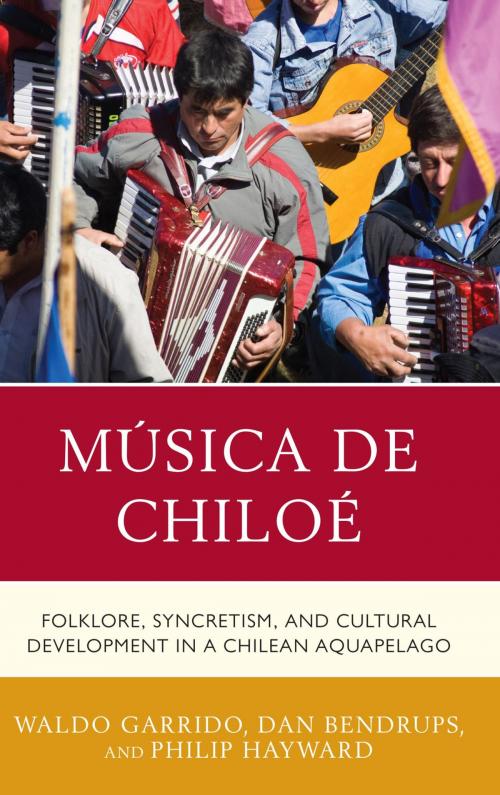Música de Chiloé
Folklore, Syncretism, and Cultural Development in a Chilean Aquapelago
Nonfiction, Entertainment, Music, Theory & Criticism, Ethnomusicology, Music Styles, Folk & Traditional, History, Americas, South America| Author: | Waldo Garrido, Dan Bendrups, Philip Hayward | ISBN: | 9781498528863 |
| Publisher: | Lexington Books | Publication: | December 3, 2018 |
| Imprint: | Lexington Books | Language: | English |
| Author: | Waldo Garrido, Dan Bendrups, Philip Hayward |
| ISBN: | 9781498528863 |
| Publisher: | Lexington Books |
| Publication: | December 3, 2018 |
| Imprint: | Lexington Books |
| Language: | English |
The islands of Chiloé, in southern Chile, have developed a distinct culture over several centuries, blending indigenous traditions and Spanish settler heritage to create a vibrant pattern of folklore, music, dance, and related creative practices. This cultural heritage has become an important aspect of the islands’ identity and is key to their successful marketing as a tourist destination. However, these elements exist in tension with new developments, most particularly the introduction of salmon aquaculture, which has disrupted traditional livelihood patterns and polluted the region’s marine environment. This volume analyzes the development of the islands’ distinct culture with a particular focus on music and dance. Key topics include the relation of tradition and modernity, the impact of tourism on cultural practice, and the relationship between social activism and music culture. The authors complement this focus with a discussion of their own creative engagements with the region through the production of the music album Viaje a Chiloé (2018) and through the work of the audiovisual ensemble The Moviolas (in 2015–2018).
The islands of Chiloé, in southern Chile, have developed a distinct culture over several centuries, blending indigenous traditions and Spanish settler heritage to create a vibrant pattern of folklore, music, dance, and related creative practices. This cultural heritage has become an important aspect of the islands’ identity and is key to their successful marketing as a tourist destination. However, these elements exist in tension with new developments, most particularly the introduction of salmon aquaculture, which has disrupted traditional livelihood patterns and polluted the region’s marine environment. This volume analyzes the development of the islands’ distinct culture with a particular focus on music and dance. Key topics include the relation of tradition and modernity, the impact of tourism on cultural practice, and the relationship between social activism and music culture. The authors complement this focus with a discussion of their own creative engagements with the region through the production of the music album Viaje a Chiloé (2018) and through the work of the audiovisual ensemble The Moviolas (in 2015–2018).















